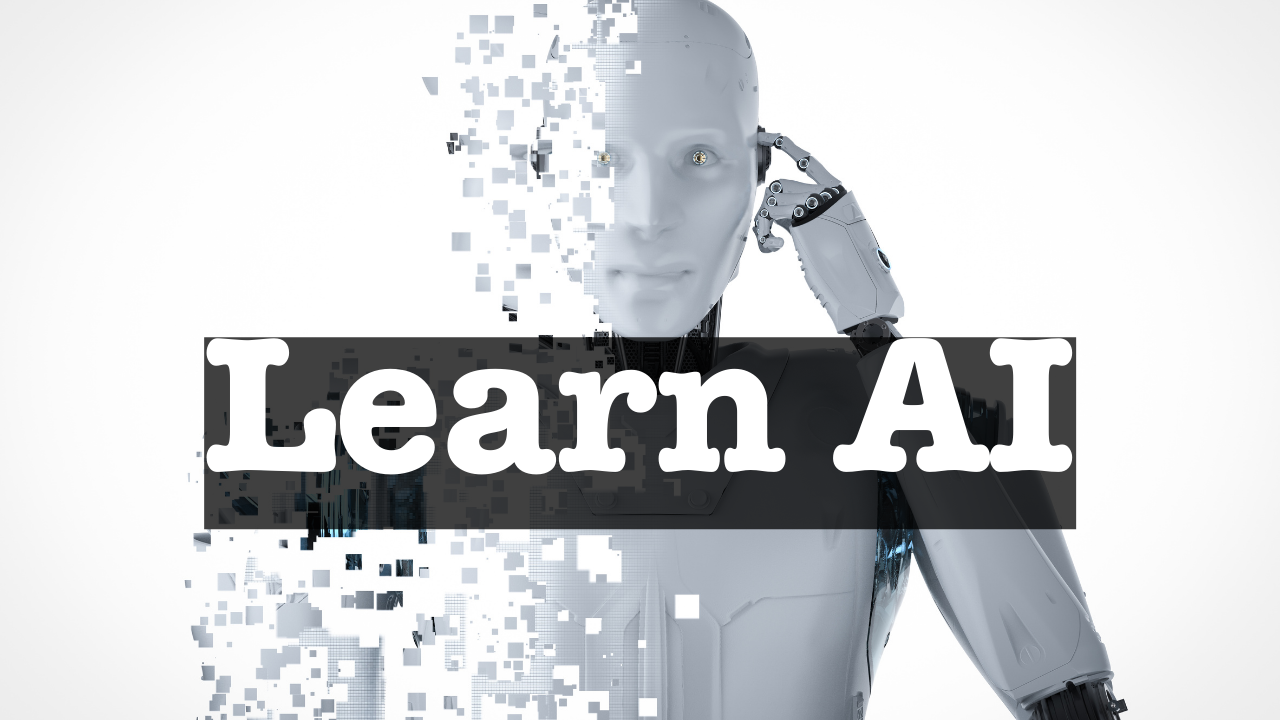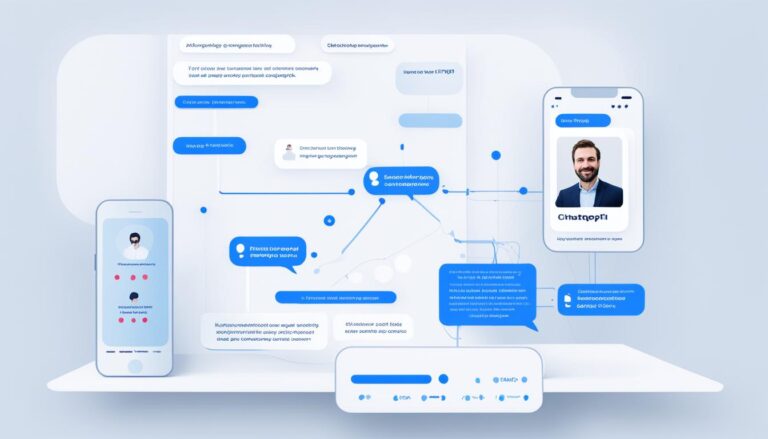
Introduction
Are you intrigued by the possibilities of Artificial Intelligence (AI) and want to dive into this fascinating field? Whether you’re a student, professional, or simply curious, learning AI can be an enriching and rewarding experience. In this blog post, we’ll explore the steps you can take to embark on your AI journey. From understanding the basics to acquiring practical skills, we’ll provide you with a roadmap to get started in the world of AI.
Understanding the Basics of AI
Before delving into the intricacies of AI, it’s essential to grasp the foundational concepts. AI refers to the development of intelligent machines that can perform tasks that typically require human intelligence. It encompasses various subfields, such as machine learning, natural language processing, computer vision, and robotics.
To understand AI better, let’s take a closer look at some of its key components:
- Machine Learning: This subset of AI enables systems to learn from data and improve their performance over time without explicit programming. It utilizes algorithms that allow computers to identify patterns and make predictions or decisions.
- Neural Networks: Inspired by the human brain’s structure, neural networks are algorithms designed to recognize complex patterns and relationships within data. They consist of interconnected nodes, or artificial neurons, which process information and pass it through layers to make predictions or classifications.
- Deep Learning: Deep learning is a specialized form of neural networks that utilizes multiple layers to extract hierarchical representations of data. It has achieved remarkable success in various AI applications, including image recognition and natural language processing.
Steps to Learn AI
1. Building a Strong Foundation
To start your AI journey, familiarize yourself with the fundamental concepts of mathematics and programming. Having a solid understanding of linear algebra, calculus, and probability theory will help you comprehend the underlying principles of AI algorithms. Additionally, gaining proficiency in a programming language like Python will enable you to implement AI models and work with popular libraries such as TensorFlow and PyTorch.
Here’s a table summarizing the key mathematical concepts for AI:
| Mathematical Concept | Description |
|---|---|
| Linear Algebra | Study of vectors, matrices, and linear transformations. It is fundamental for understanding AI models and operations. |
| Calculus | Branch of mathematics focused on rates of change and accumulation. It is essential for optimization algorithms and gradient-based learning. |
| Probability Theory | Study of uncertainty and randomness. Probability theory forms the basis for statistical modeling and learning algorithms in AI. |
2. Exploring AI Resources
There is a vast array of resources available to learn AI, both online and offline. Here are a few recommendations:
- Online Courses: Platforms like Coursera, edX, and Udacity offer comprehensive AI courses taught by experts from top universities and companies. Andrew Ng’s “Machine Learning” course is highly acclaimed and provides a solid introduction to the field.
- Books: “Artificial Intelligence: A Modern Approach” by Stuart Russell and Peter Norvig is a widely recognized textbook that covers AI from the basics to advanced topics. Other notable books include “Deep Learning” by Ian Goodfellow, Yoshua Bengio, and Aaron Courville, and “Pattern Recognition and Machine Learning” by Christopher Bishop.
- Blogs and Tutorials: Explore AI-focused blogs and tutorials to stay updated with the latest advancements and gain practical insights. Websites like Towards Data Science, Medium, and AI Hub offer a wealth of informative articles and guides.
- YouTube Videos : One of the effective ways to enhance your understanding of AI is through multimedia resources. YouTube provides an abundance of educational content on the topic, including tutorials, lectures, and discussions. As part of your learning journey, consider exploring relevant videos from trusted channels. To get you started, here’s an embedded video from our YouTube channel on the topic of learning AI:
Watching video tutorials can offer visual demonstrations, practical examples, and in-depth explanations that complement your learning experience. Subscribe to your favorite AI-focused YouTube channels and engage with the content creators and fellow viewers through comments and discussions.
Remember, while videos are a valuable resource, it is essential to supplement them with other learning materials to gain a comprehensive understanding of AI concepts and applications.
3. Hands-On Practice
Theory alone is insufficient to truly grasp AI concepts. Engaging in hands-on projects and real-world applications is crucial. Kaggle, a popular platform for data science competitions, provides datasets and challenges that allow you to apply your AI knowledge. Additionally, participating in open-source projects or joining AI communities can provide valuable practical experience and foster collaboration with like-minded individuals.
4. Specialize in AI Subfields
Once you’ve established a strong foundation, consider specializing in specific AI subfields that align with your interests. Some popular areas include:
- Natural Language Processing (NLP): NLP focuses on enabling computers to understand and generate human language. It has applications in chatbots, language translation, sentiment analysis, and more.
- Computer Vision: Computer vision involves teaching computers to interpret and understand visual information from images or videos. It finds applications in facial recognition, object detection, autonomous vehicles, and medical imaging.
- Reinforcement Learning: Reinforcement learning is a branch of AI that deals with training agents to make sequential decisions through trial and error. It has applications in robotics, game playing, and optimization problems.
- Generative Adversarial Networks (GANs): GANs are a powerful framework within AI that can generate realistic and high-quality synthetic data. They are used in image synthesis, video generation, and creative applications.
5. Join AI Communities and Attend Events
Networking and collaboration are vital aspects of learning AI. Engage with AI communities by joining forums, attending meetups, and participating in online discussion groups. This allows you to learn from experts, exchange ideas, and stay up to date with the latest trends. Additionally, attending AI conferences and workshops provides opportunities to connect with industry professionals and gain insights into cutting-edge research.
Here’s a table highlighting some popular AI communities and events:
| AI Communities | Description |
|---|---|
| Kaggle | An online platform for data science and machine learning enthusiasts. It offers competitions, datasets, and a community forum for collaboration and learning. |
| AI Stack Exchange | A question-and-answer platform dedicated to artificial intelligence and machine learning. Users can ask questions, provide answers, and engage in discussions with experts in the field. |
| Data Science Central | An online community that brings together data scientists, AI practitioners, and enthusiasts. It offers articles, tutorials, and a platform for knowledge sharing and networking. |
| AI Village | A community-driven organization that focuses on AI security, privacy, and ethics. It hosts events, workshops, and educational resources to promote responsible AI practices. |
| AI Alignment Forum | A forum dedicated to discussions on AI alignment and the long-term societal impact of artificial intelligence. It brings together researchers, policymakers, and stakeholders to address critical AI-related issues. |
| AI Events | Description |
|---|---|
| NeurIPS (Conference on Neural Information Processing Systems) | One of the largest and most prestigious conferences in machine learning and AI. It features workshops, tutorials, and paper presentations by leading researchers in the field. |
| CVPR (Conference on Computer Vision and Pattern Recognition) | A premier conference focused on computer vision and pattern recognition. It showcases the latest research advancements, keynote talks, and workshops in the field of computer vision. |
| ICML (International Conference on Machine Learning) | A leading conference that covers a broad range of machine learning topics. It includes presentations of cutting-edge research, tutorials, and workshops for researchers and practitioners. |
| AAAI (Association for the Advancement of Artificial Intelligence) | An annual conference that highlights advancements in AI research and applications. It features paper presentations, invited talks, and workshops across various AI subfields. |
| AI Summit | A global event series that brings together industry leaders, researchers, and innovators in AI. It offers keynote speeches, panel discussions, and networking opportunities for AI professionals. |
Attending AI events and participating in AI communities can provide valuable insights, networking opportunities, and exposure to the latest developments in the field. Remember to check the respective websites for updated information on events and communities.
Conclusion
Embarking on the journey of learning AI may seem daunting at first, but with the right resources and dedication, you can unlock the incredible potential of this field. By understanding the basics, exploring various learning resources, engaging in hands-on practice, specializing in subfields, and connecting with the AI community, you can pave the way to becoming a proficient AI practitioner.
Remember, AI is a rapidly evolving field, so continuous learning and adaptation are essential. Stay curious, embrace challenges, and never stop exploring the fascinating world of Artificial Intelligence!
References
- Russell, S., & Norvig, P. (2016). Artificial Intelligence: A Modern Approach (3rd ed.). Pearson.
- Goodfellow, I., Bengio, Y., & Courville, A. (2016). Deep Learning. MIT Press.
- Bishop, C. M. (2006). Pattern Recognition and Machine Learning. Springer.
FAQs
Q: What skills do I need to learn AI?
A: Learning AI requires a combination of skills. It is beneficial to have a strong foundation in mathematics, particularly in linear algebra, calculus, and probability theory. Proficiency in programming languages like Python is also essential for implementing AI algorithms and working with AI frameworks and libraries.
Q: Can I learn AI without a background in computer science?
A: Yes, you can learn AI without a formal computer science background. Many online courses and resources cater to beginners and provide step-by-step guidance. However, having some programming experience and a willingness to learn new concepts and techniques will be advantageous.
Q: Where can I find resources to learn AI online?
A: There are numerous online platforms that offer AI courses, tutorials, and resources. Some popular platforms include Coursera, edX, Udacity, and Khan Academy. Additionally, websites like Towards Data Science, Medium, and AI Hub provide a wealth of articles, blogs, and tutorials on AI-related topics.
Q: How can I gain practical experience in AI?
A: Hands-on practice is crucial for learning AI effectively. You can start by working on small projects and gradually progress to more complex ones. Platforms like Kaggle provide datasets and challenges for real-world applications. Additionally, contributing to open-source projects and participating in AI competitions can help you gain practical experience.
Q: What are some specialized areas within AI that I can explore?
A: AI encompasses various subfields that you can specialize in based on your interests. Some popular areas include natural language processing (NLP), computer vision, reinforcement learning, and generative adversarial networks (GANs). Exploring these subfields will allow you to dive deeper into specific applications and techniques within AI.
Q: Are there any AI communities or forums where I can connect with others?
A: Yes, there are several AI communities and forums where you can connect with like-minded individuals, seek advice, and collaborate. Platforms like Kaggle, AI Stack Exchange, and Data Science Central have active communities. Participating in online discussion groups and attending AI meetups or conferences is another way to network with AI professionals and researchers.
Q: How can I stay updated with the latest advancements in AI?
A: To stay up to date with AI advancements, follow reputable AI blogs, read research papers, and subscribe to AI newsletters. Websites like ArXiv, AI News, and AI Trends provide access to the latest research papers and news in the field. Additionally, attending AI conferences and workshops is an excellent way to learn about cutting-edge developments.





